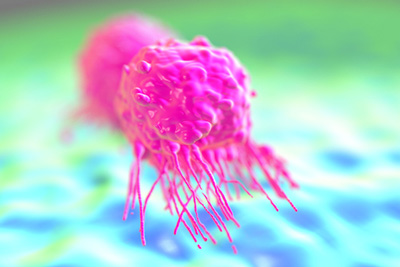Genetic link confirmed between DCIS and development of invasive breast cancer
Posted: 12 April 2016 | Victoria White, Digital Content Producer | No comments yet
The discovery means that a family history of DCIS could be as important to assessing a woman’s risk as a history of invasive breast cancer…


Scientists funded by Breast Cancer Now have confirmed inherited genetic links between non-invasive cancerous changes found in the milk ducts – known as ductal carcinoma in situ (DCIS) – and the development of invasive breast cancer.
This means that a family history of DCIS could be as important to assessing a woman’s risk as a history of invasive breast cancer.
DCIS is a non-invasive form of early breast cancer, where cancerous cells are entirely contained within the milk ducts of the breast. 5,000 women are diagnosed with DCIS each year in the UK, with two thirds of these cases being diagnosed through routine breast screening, rather than symptomatic detection. But while DCIS accounts for 1 in 10 breast cancers in the UK, very little has been understood about its genetic risk factors and genetic relationship with invasive breast cancer, until now.
Biomarkers aren’t just supporting drug discovery – they’re driving it
FREE market report
From smarter trials to faster insights, this report unpacks the science, strategy and real-world impact behind the next generation of precision therapies.
What you’ll unlock:
- How biomarkers are guiding dose selection and early efficacy decisions in complex trials
- Why multi-omics, liquid biopsy and digital tools are redefining the discovery process
- What makes lab data regulatory-ready and why alignment matters from day one
Explore how biomarkers are shaping early drug development
Access the full report – it’s free!
In the new study, scientists at King’s College London analysed over 200,000 genetic markers in DCIS patients. The team, led by Dr Elinor Sawyer and Professor Montserrat Garcia-Closas, compared DNA extracted from the blood samples of over 5,000 women with DCIS and 24,000 with invasive ductal cancer (the most common form of invasive breast cancer), finding that most of the genetic changes linked to invasive ductal cancer were also linked to DCIS, and there were no unique changes linked only to DCIS.
These findings provide the strongest evidence yet of a shared genetic susceptibility between DCIS and invasive ductal cancer, giving us important insight into the biology of DCIS. This conclusion also confirms the need for a family history of DCIS to be considered when assessing familial risk of breast cancer.
Further research required
It is currently estimated that only 50% of DCIS cases will develop into invasive breast cancer if left untreated. However, at present it is not possible to predict which DCIS cases will progress to invasive breast cancer and therefore all women are offered treatment after diagnosis. This research is therefore just the first step. No genetic change unique to DCIS (and not invasive breast cancer) was discovered in this study, leaving researchers still without a genetic marker to find cases of DCIS with a very low risk of progressing to life-threatening breast cancer. Being able to identify these patients could potentially allow them to be spared unnecessary treatment.
It is clear that preventing overtreatment of DCIS requires further research along a number of different avenues. In the short term, it is hoped that a biomarker test could be developed to predict the risk of progression for DCIS patients, with a number of promising molecules identified in recent years.
Commenting on the research, Dr Elinor Sawyer, Clinical Reader in Oncology at King’s College London and Consultant Oncologist at Guys and St Thomas’ NHS Foundation Trust, said: “This is a great leap in our understanding of DCIS, but it is also just the first step. We now hope to carry out a larger study assessing more genetic changes to discover whether there are any that predispose solely to DCIS, something that could help us predict whose non-invasive cancer is unlikely to progress.”
Related topics
Biomarkers, Oncology
Related conditions
Breast cancer
Related organisations
Breast Cancer Now








